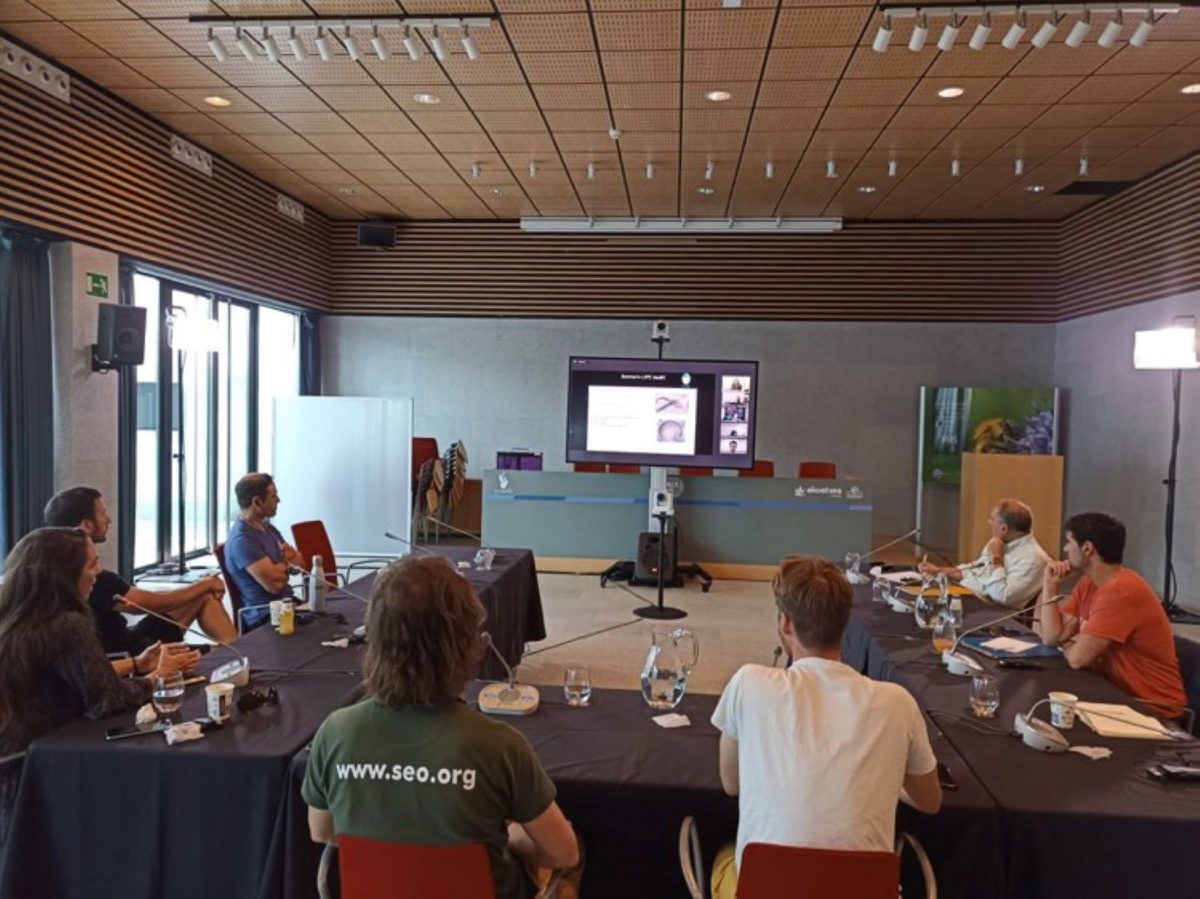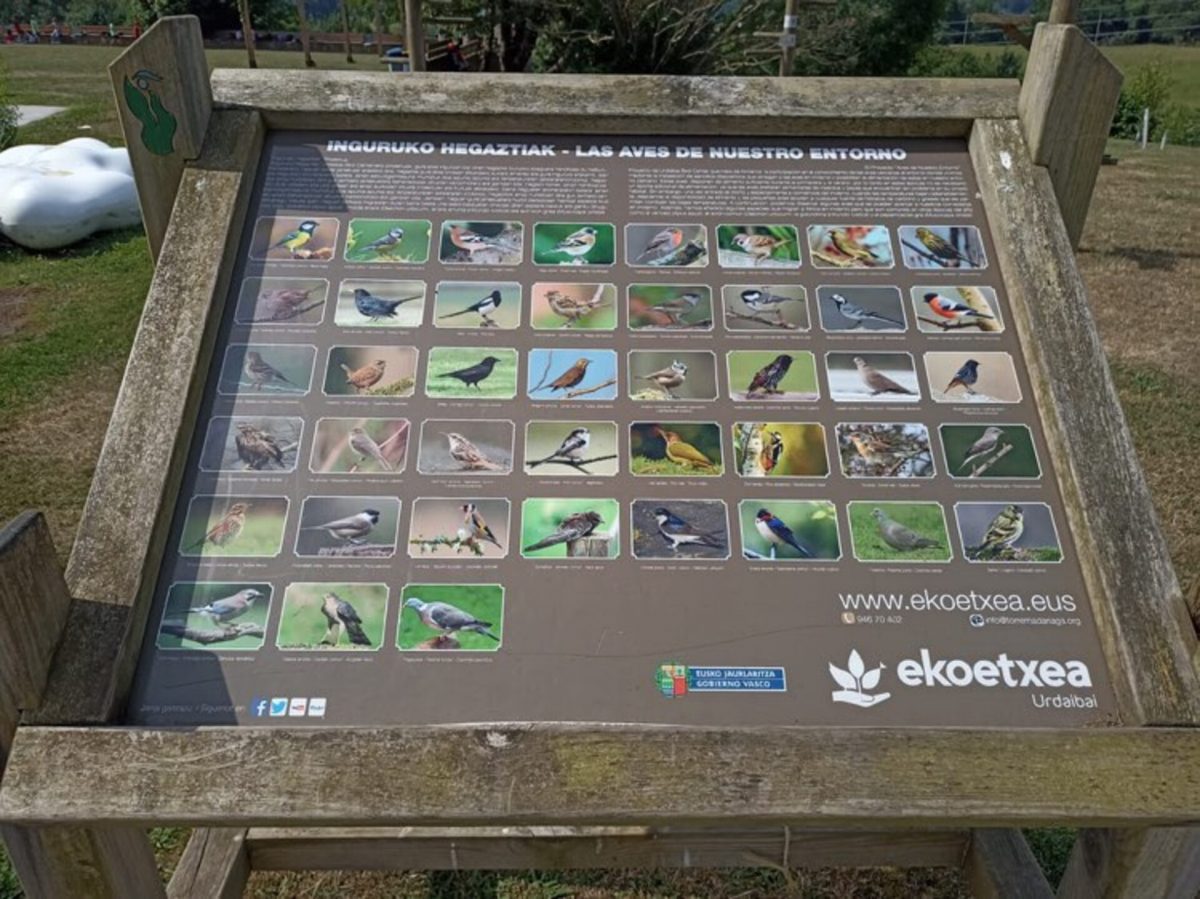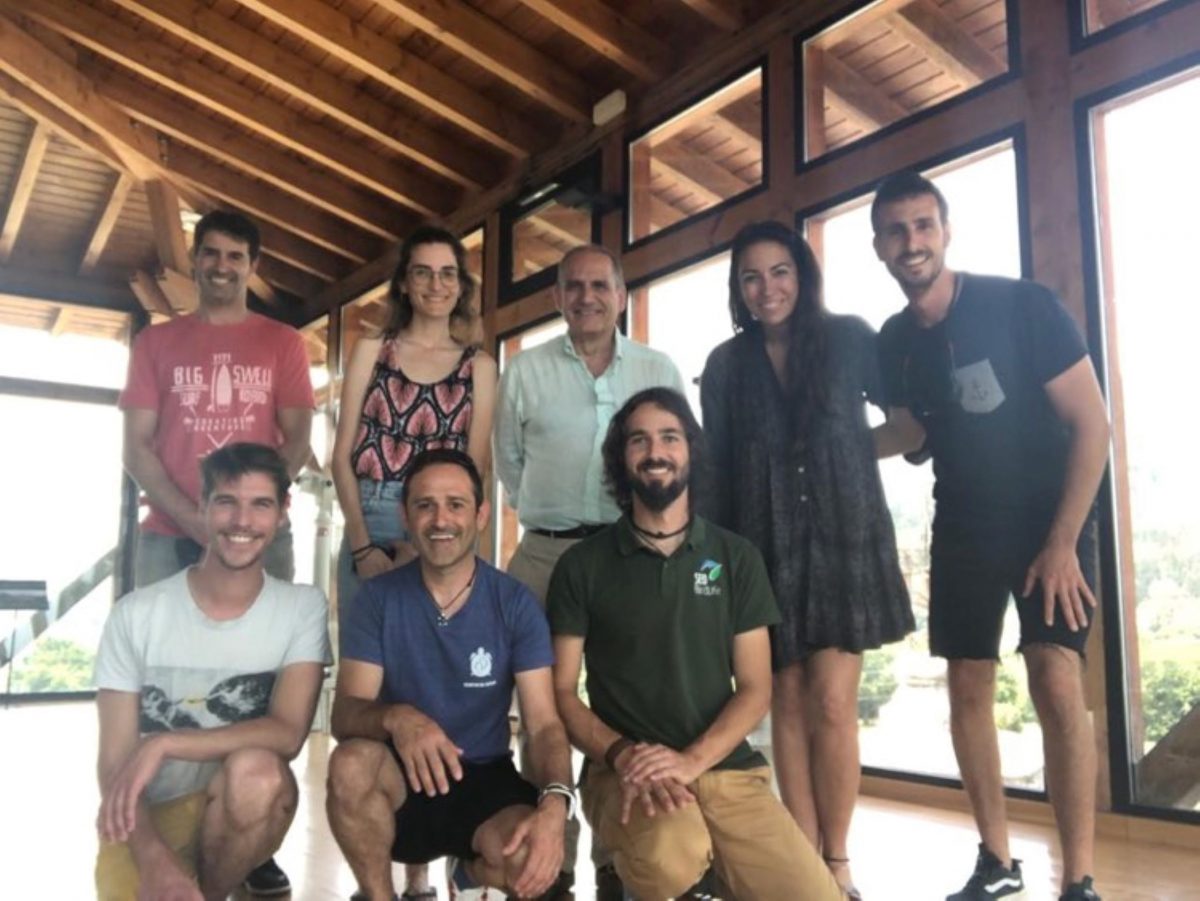Collect and analyze stranded seabirds to better understand the impact of plastic pollution on them. This is one of the main objectives of the LIFE SeaBiL project. To achieve this, Spanish, Portuguese and French stakeholders are joining forces to build a transnational stranding network.
In June 2022, the LIFE SeaBiL project partners went to meet the various players who would make up this network. Ludovico De Gea, representing SEO, organized a seminar in Urdaibaï, one of the pilot sites for the LIFE SeaBiL project.
 © Marga L. Rivas
© Marga L. Rivas
Twenty or so participants, including several representatives of care centers, protected area managers and members of associations, met for a day of face-to-face and distance learning to discuss the impact of plastic pollution on the marine environment and the species that depend on it.
After presenting the LIFE SeaBiL project to the participants, UAL representative Marga Rivas outlined the various known consequences of plastic on living organisms. Discussions then turned to the constitution of the stranding network itself, the storage procedures and the protocols surrounding its operation. The debates were fruitful and rich in contributions.
Enrique Talledo, photographer and cameraman, member of the “Secretos del océano” association, then presented one of his documentary films, “un mar de plasticos”. With his camera in hand, Enrique captured a number of striking images, showing us the extent of the consequences of plastic pollution on the marine environment.
 © Marga L. Rivas
© Marga L. Rivas
The emotional day ended with a visit to the Urdaibaï Biosphere Reserve.
Featuring a museum and a wide range of educational materials, the discussions continued as the network members wandered around, ending the day at the top of the reserve’s observatory, scrutinizing the local avifauna with the expert advice of SEO members.
